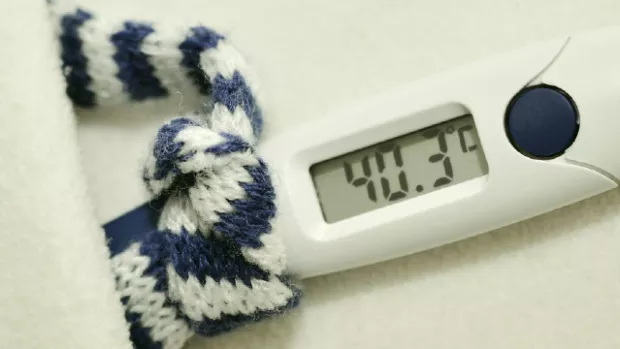
MS in winter: vaccines, mobility and cold weather symptoms
On the MS Helpline, we talk to a lot people about the challenges cold winter months can bring for people with MS.
We cover everything from cold-related symptoms to worries over fuel bills and loneliness. Here are some of the things we hear about most and a few tips to help you through the colder months.
The cold and MS symptoms
While it’s more common for people with MS to be affected by heat, many also experience a change in symptoms with the cold. Your MS can affect how the temperature feels on your skin, or how your body can adjust to temperature change.
Although everyone’s symptoms are different, some cold-related changes we often hear about include muscle stiffness or spasms (spasticity), mobility, pain and even depression. Usually, most symptoms will pass when you find a way of getting your temperature back to something comfortable.
Tips for staying warm
These simple tips for staying warm are often enough to bring your cold-related symptoms back under control.
- Wear layers - it’s easier to regulate your temperature wearing several lighter layers than one very thick one.
- Extra heat - hot water bottles and electric blankets can help, especially if you live with other people but you’re the only one feeling the cold. But if MS has affected how you feel temperature on your skin then you need to be careful you don’t get burnt.
- Keep active - doing exercise, even a little bit, can help improve your circulation and help you stay warm. Find out more about ways to stay active.
- Keep your home warm - check for drafts and make sure windows and doors are closed to keep the heat in. Having good home insulation can help save money on fuel costs as well as keep you warm. You might be able to get help paying for winter fuel, better heating and insulation.
- Food and drink - eating or drinking something hot can help warm you up on the inside, as well as warm your hands and fingers. If you have meals delivered it’s a good idea to have a store of meals that won’t go off, especially in the event of bad weather. Let your MS team or your social care team know if you find it hard to prepare these meals.
Vaccines for flu and COVID-19
For everyone with MS, properly preparing for the winter is important. As well as making sure your heating is in good working order, it’s important to make sure your body is well shielded against what the winter brings. For most people with MS it makes sense to get the protection offered by vaccines.
Seasonal flu jab
The seasonal flu jab is available free of charge to anyone with MS and their carers. Your MS team can explain if there are any precautions you need to take.
Find out more about the seasonal flu vaccine
COVID-19 booster jab
A booster jab could help keep up the protection against COVID-19 – and that could be especially useful in the colder winter months. Everyone with MS who’s already been fully vaccinated will be offered a booster jab. Usually, that’ll be around 6 months after your second jab.
You might be invited to have the annual flu jab at the same time.
Find out more about getting a COVID-19 booster jab
COVID-19 third jab
Some people with MS are being offered a third “primary dose” of the COVID-19 vaccine. Government vaccine advisers recommend it for people who had a ‘severely weakened immune system’ around the time of their first two jabs.
Just because you have MS doesn’t mean you will have a weakened immune system. But certain treatments could have that effect.
Find out more about the third COVID-19 primary dose
MS balance and mobility in colder weather
As pretty as a winter scene can be, it can pose problems for getting around. The cold weather can increase stiffness and reduce mobility, so again it’s really important to wrap up warm. If you use a wheelchair try wrapping your legs in a blanket or a fleece.
Snow and ice can be hazardous even if you have good stability. But it can be even worse if your balance or motion are affected by your MS. Introducing balancing and exercise routines early on in the winter can be really beneficial in staying mobile and active.
Discover exercises and aids to improve balance and mobility
Vitamin D
Vitamin D usually gets into your body through the skin’s contact with sunlight, so it’s harder to get in dark winter months. The UK government’s Scientific Advisory Committee on Nutrition recommends everyone thinks about taking a supplement to make sure they’re getting enough vitamin D.
Find out more about vitamin D and MS
Fight loneliness by staying connected
Isolation and loneliness can have a real impact on your wellbeing. Joining one of our local groups can be a great way to stay connected. We also run a befriending service.
Find local support
Find out more about our befriending service
You don’t need to travel to stay social, our online community is just a mouse click away. And, of course, we’re here on the MS Helpline Monday to Friday 9am to 7pm.




